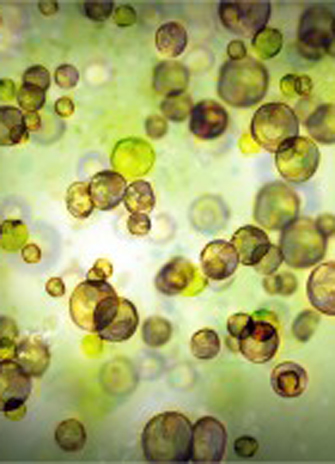Normal
0
false
false
false
EN-CA
X-NONE
X-NONE
/* Style Definitions */
table.MsoNormalTable
{mso-style-name:”Table Normal”;
mso-tstyle-rowband-size:0;
mso-tstyle-colband-size:0;
mso-style-noshow:yes;
mso-style-priority:99;
mso-style-parent:””;
mso-padding-alt:0cm 5.4pt 0cm 5.4pt;
mso-para-margin-top:0cm;
mso-para-margin-right:0cm;
mso-para-margin-bottom:8.0pt;
mso-para-margin-left:0cm;
line-height:107%;
mso-pagination:widow-orphan;
font-size:11.0pt;
font-family:”Calibri”,”sans-serif”;
mso-ascii-font-family:Calibri;
mso-ascii-theme-font:minor-latin;
mso-hansi-font-family:Calibri;
mso-hansi-theme-font:minor-latin;
mso-fareast-language:EN-US;}
Normal
0
false
false
false
EN-CA
X-NONE
X-NONE
/* Style Definitions */
table.MsoNormalTable
{mso-style-name:”Table Normal”;
mso-tstyle-rowband-size:0;
mso-tstyle-colband-size:0;
mso-style-noshow:yes;
mso-style-priority:99;
mso-style-parent:””;
mso-padding-alt:0cm 5.4pt 0cm 5.4pt;
mso-para-margin-top:0cm;
mso-para-margin-right:0cm;
mso-para-margin-bottom:8.0pt;
mso-para-margin-left:0cm;
line-height:107%;
mso-pagination:widow-orphan;
font-size:11.0pt;
font-family:”Calibri”,”sans-serif”;
mso-ascii-font-family:Calibri;
mso-ascii-theme-font:minor-latin;
mso-hansi-font-family:Calibri;
mso-hansi-theme-font:minor-latin;
mso-fareast-language:EN-US;}
The start of another academic year brings with it an interesting assortment of speakers who will headline this year’s Research Seminar Series in Science & Technology Studies hosted by the Science and Technology Studies Program at York University.
The popular series continues into April. All seminars are conducted in a casual, open environment and, unless otherwise specified, take place on Tuesdays from 12:30 to 2pm in the Paul A. Delaney Gallery, 320 Norman Bethune College. The seminars are free and open to the public.
This year’s series is constructed around the theme “Entanglements of Instruments and Media in Investigating Organic Worlds”. Experimental arrangements rely on a range of different kinds of instruments and media whose identity and relationship to one another is unstable. The seminar series highlights how, in experimental investigations of organic worlds, instruments cannot be clearly separated from the media that they probe.
The seminar series explores the roles of instruments and media for investigating organic worlds at various scales and in various settings. The sites of these experimental investigations will also be examined, to highlight the scenes of inquiries, the actors engaged in them and their social roles.
The following talks have been organized for October:
 On Oct. 8, Nicolas Langlitz (left), professor of anthropology at The New School for Social Research in New York City presents “The Dream Catcher: Philosophy in the Sleep Lab”. Langlitz, Is an anthropologist and historian of science studying epistemic cultures of mind and life sciences. He is the author of Neuropsychedelia: The Revival of Hallucinogen Research since the Decade of the Brain (2012) and Die Zeit der Psychoanalyse: Lacan und das Problem der Sitzungsdauer (2005). He is currently working on a project on the interdisciplinary exchange between brain researchers and philosophers of mind, especially in the context of neuroscientific dream research. He has also started a new project on how culture became an object of natural scientific research in primatology and related disciplines. He is Assistant Professor in the Department of Anthropology at the New School for Social Research in New York.
On Oct. 8, Nicolas Langlitz (left), professor of anthropology at The New School for Social Research in New York City presents “The Dream Catcher: Philosophy in the Sleep Lab”. Langlitz, Is an anthropologist and historian of science studying epistemic cultures of mind and life sciences. He is the author of Neuropsychedelia: The Revival of Hallucinogen Research since the Decade of the Brain (2012) and Die Zeit der Psychoanalyse: Lacan und das Problem der Sitzungsdauer (2005). He is currently working on a project on the interdisciplinary exchange between brain researchers and philosophers of mind, especially in the context of neuroscientific dream research. He has also started a new project on how culture became an object of natural scientific research in primatology and related disciplines. He is Assistant Professor in the Department of Anthropology at the New School for Social Research in New York.
 Nicole Nelson (right), is a postdoctoral fellow in the Social Studies of Medicine Department at McGill University. On Oct. 15, Nelson will deliver a seminar titled “Containing Complexities: Experimental Practice in an Animal Behavior Genetics Laboratory”. Her research investigates the social dimensions of biomedical knowledge production, especially genetic knowledge. Nelson is interested in the way that genetic explanations for human diseases and disorders are investigated, materialized, and circulated in different institutional and sociocultural settings. She employs mainly ethnographic and qualitative methods to explore the practices of doing genetic research and the meanings that scientists and clinicians give to this research—from the day-to-day frustrations of running experiments or clinical trials to future predictions about how molecular information might be used in the clinic.
Nicole Nelson (right), is a postdoctoral fellow in the Social Studies of Medicine Department at McGill University. On Oct. 15, Nelson will deliver a seminar titled “Containing Complexities: Experimental Practice in an Animal Behavior Genetics Laboratory”. Her research investigates the social dimensions of biomedical knowledge production, especially genetic knowledge. Nelson is interested in the way that genetic explanations for human diseases and disorders are investigated, materialized, and circulated in different institutional and sociocultural settings. She employs mainly ethnographic and qualitative methods to explore the practices of doing genetic research and the meanings that scientists and clinicians give to this research—from the day-to-day frustrations of running experiments or clinical trials to future predictions about how molecular information might be used in the clinic.
Information on each month’s seminars will appear in YFile. For the full calendar, visit the the Research Seminar Series in Science and Technology Studies website or contact the convenor, Professor Joan Steigerwald by e-mail steiger@yorku.ca. The 2013-2014 STS Seminar Series is sponsored by Situating Science Cluster Grant, iSTS, Department of Natural Science, Faculty of Fine Arts, Faculty of Liberal Arts and Professional Studies, Faculty of Science, Bethune College, and the Canadian Research Chair in Sustainability and Culture.


